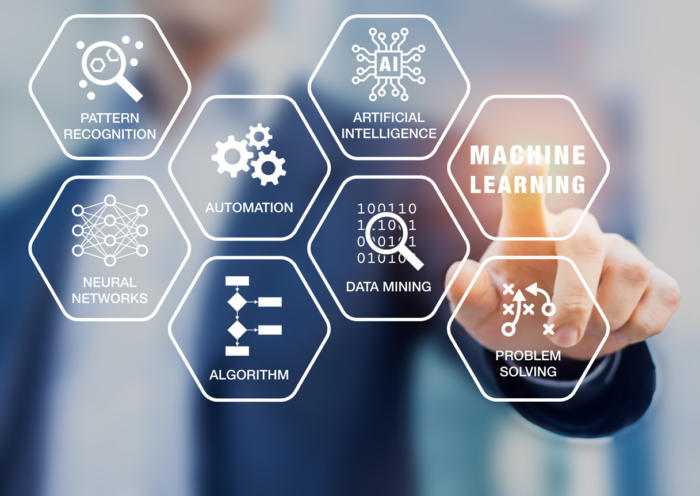Source – cio.com
Artificial intelligence and its subset, machine learning – two topics that make great dinner talk. Why? Many businesses are already using AI, and there’s little doubt that advances in AI and machine learning will continue to change how we work. But ask any IT leader how or where that’s most likely to happen and the conversation may go on all night.
One thing is clear: Technology that’s equipped with AI or machine learning can be a powerful tool for the kinds of tasks humans just can’t master. Machines can recognize sequences in large volumes of data, identify behavior that doesn’t fit normal use patterns, or apply speech recognition to unusual applications. But they don’t have the general intelligence that humans do – which is why AI and machine learning will likely augment human skills, not replace them outright.
“In my view, artificial intelligence and machine learning is a powerful tool, but not a replacement,” says Jessica Marie (@thoughtcosm), Product Marketing Principal at White Hat Security. “It is technology that can be leveraged in order to gain efficiency and accuracy, but it’s not something that will be able to fully replace the need for human beings. Machines are great at the repetitive grunt-work that gets time-consuming. And in reality, these new technologies are (at least for the time being) best used to service and augment the work of humans – not replace them.”
So where will this augmentation happen? We reached out to IT influencers to find out—and it’s no surprise that their opinions are as varied as their backgrounds. But while their answers may seem divergent, the truth is AI and machine learning have enormous potential in many different areas. For forward-thinking companies, that represents multiple opportunities.
Enhancing Security
Security – think identifying abnormal behavior patterns to recognize fraudulent activity or predict a cyber attack – is one area where influencers see solid business potential for AI and machine learning technology.
Troy Wilkinson (@Troy_Wilkinson), best-selling author on cybersecurity and CEO at Axiom Cyber Solutions, would concur. “We use what we like to call human-guided machine learning,” he says. “The application of AI within cyber-security is still being perfected so we can’t rely on the machines to do all the heavy lifting and stop researching threats ourselves, but we can rely on automation to help us. Also, with the continued shortage of skilled cyber-security experts in the workforce, companies will need to utilize automation to be more effective and proactive than buried in the weeds and always reacting to threats.”
Data-Driven Decision Making
AI and machine learning technology can handle volumes of data that the human mind can’t fathom—and in this era of big data, data analytics, and business intelligence, it’s clear that AI and machine learning have a role to play.
“It used to be that content was king, but now with the proliferation of data, it is hard to sort through and select the right content for the right time,” says Thomas Willingham (@GotTWilling), Product Marketing Leader and Evangelist. “In the future, I see AI and machine learning having the most impact for setting context. They can help serve up the right data at the right time, to ensure the best decisions can be made as quickly as possible, using the right data.”
Think large volume, and some people think tedious. But here’s where AI can augment human capabilities, says David Geer (@geercom), Principal at Geer Communications. “Google is an example of how AI extends the mind today. AI will be a resource to offload tedious cognitive tasks for rapid completion and to retrieve conclusions from algorithms so that our brains can make determinations and decisions that AI cannot.”
Tobias Buechsenschuetz (@TobBuc), VP of Maastricht Consultancy Day with SCOPE | 3MA, says he thinks AI will have the biggest impact in decision-making. “It’ll be able to consider a wider variety of data from all over the world and recognize patterns to make the right conclusions,” he notes.
Product Development
AI & machine learning technology will also impact product development—in more ways than one.
“I see AI having a huge impact on all product development, allowing for advanced and rapid testing without employing additional human capital,” says Nicole Scalese (@nicolescalese), Partner, Business Development at Intermedia.
But the technology will also continue impacting and driving product features. “Personally, the way I’m most impacted by AI is via the tools available on my phone,” says Maria Korolov (@MariaKorolov), Editor & Publisher of Hypergrid Business. “Voice recognition, instant translation, image processing, navigation, and assistants like Okay Google and Siri.”
Looking Ahead
Whatever the future holds, IT influencers agree it’s an exciting time, as AI and machine learning technology can help organizations discover (and capitalize on) new ways of working and doing business.
“We’re still in the phase of industrializing our analytics effort and building our corps of (citizen) data scientists, and AI/machine learning/cognitive will be the next big step in that journey,” says Christopher Petersen (@CPetersen_CS), IT consultant at Crystallized Software.
Kevin Jackson (@Kevin_Jackson), Director Cloud Solutions & Technical Fellow at Engility Corporation, sums it up. “AI and machine learning both impact our everyday lives right now in things like Google Maps, Siri and the Internet of Things,” he notes. “As these two capabilities blend into the delivery of deep learning capabilities within autonomous vehicles, many of the wonders we have dreamed of for ages will finally be realized.”
